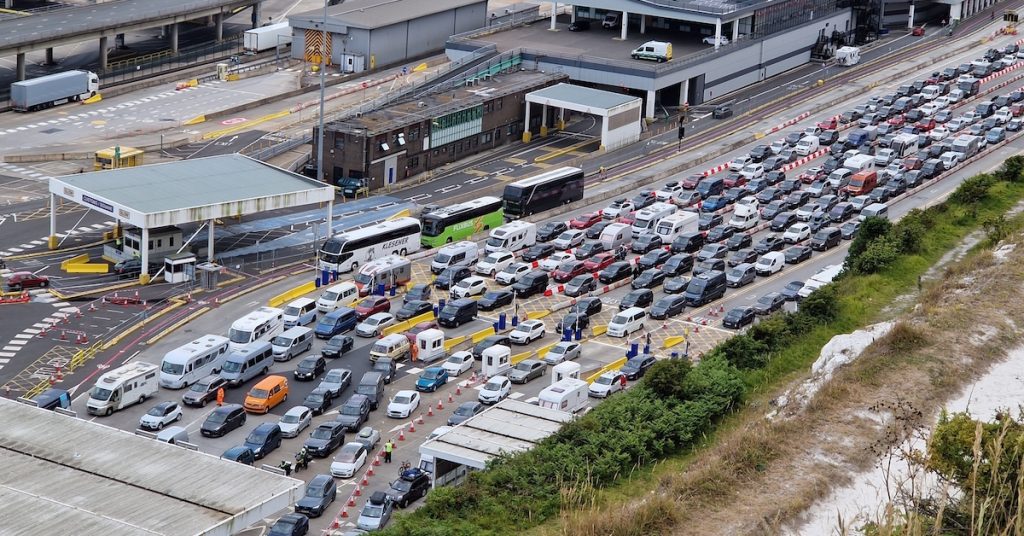The introduction of the EU’s Entry/Exit System (EES) has been postponed, averting potential chaos at Dover, according to local officials.
- Dover District Council expressed relief over the delay, citing unprepared road networks and infrastructure as major concerns.
- The lack of readiness for technological trials at Dover was a significant factor in the decision to postpone the launch.
- Both Dover and Kent local councils foresee substantial risks if the EES were introduced suddenly without prior testing.
- Transport operators like Eurostar and Eurotunnel express disappointment, as they were prepared for the original launch date.
The European Union’s decision to postpone the launch of the new border Entry/Exit System (EES) has been welcomed by local government leaders in Dover. The delay, announced on October 11, reportedly prevented what was described as ‘complete and utter carnage’ due to unprepared infrastructure. Kevin Mills, the leader of Dover District Council, emphasised their inability to be ready by the initial November 10 launch date, underscoring the absence of live technological trials and unprepared road networks. “We would not have been ready on November 10. We’re more than happy there has been a delay,” he told the House of Lords Justice and Home Affairs Committee.
Despite the Department for Transport’s plans to manage traffic, there had been no discussions with Dover District Council regarding these measures. The council leader warned that launching the EES without comprehensive testing would result in chaos.
Roger Gough, the leader of Kent County Council, expressed similar sentiments, highlighting the relief brought by the delay. He pointed out that although efforts were made to mitigate potential impacts, significant risks remained. The uncertainty about the duration of the delay and the steps to be taken in the interim was also a concern for local authorities.
Conversely, transport enterprises like Eurostar and Eurotunnel had anticipated a different outcome. Eurostar’s general secretary and chief strategic partnerships officer, Gareth Williams, stated they were prepared for the original launch date, having readied teams and communication plans. John Keefe from Eurotunnel, expressed disappointment over the delay, detailing their £80 million investment to ensure readiness and efficiency. “We’re disappointed. We had the infrastructure in place, the processes worked through and had recruited staff,” he commented.
Nevertheless, Keefe acknowledged the EU’s realisation that more rigorous testing is essential at their end to ensure the system’s effectiveness. He noted, “The testing needs to be rigorous at the EU end of the system, so it won’t fail.” This indicates a broader consensus on the necessity for comprehensive trials to avert future operational failures.
The delay in launching the EES has offered an opportunity to address infrastructural shortcomings, though it highlights a divide between local authorities and transport operators on readiness.

